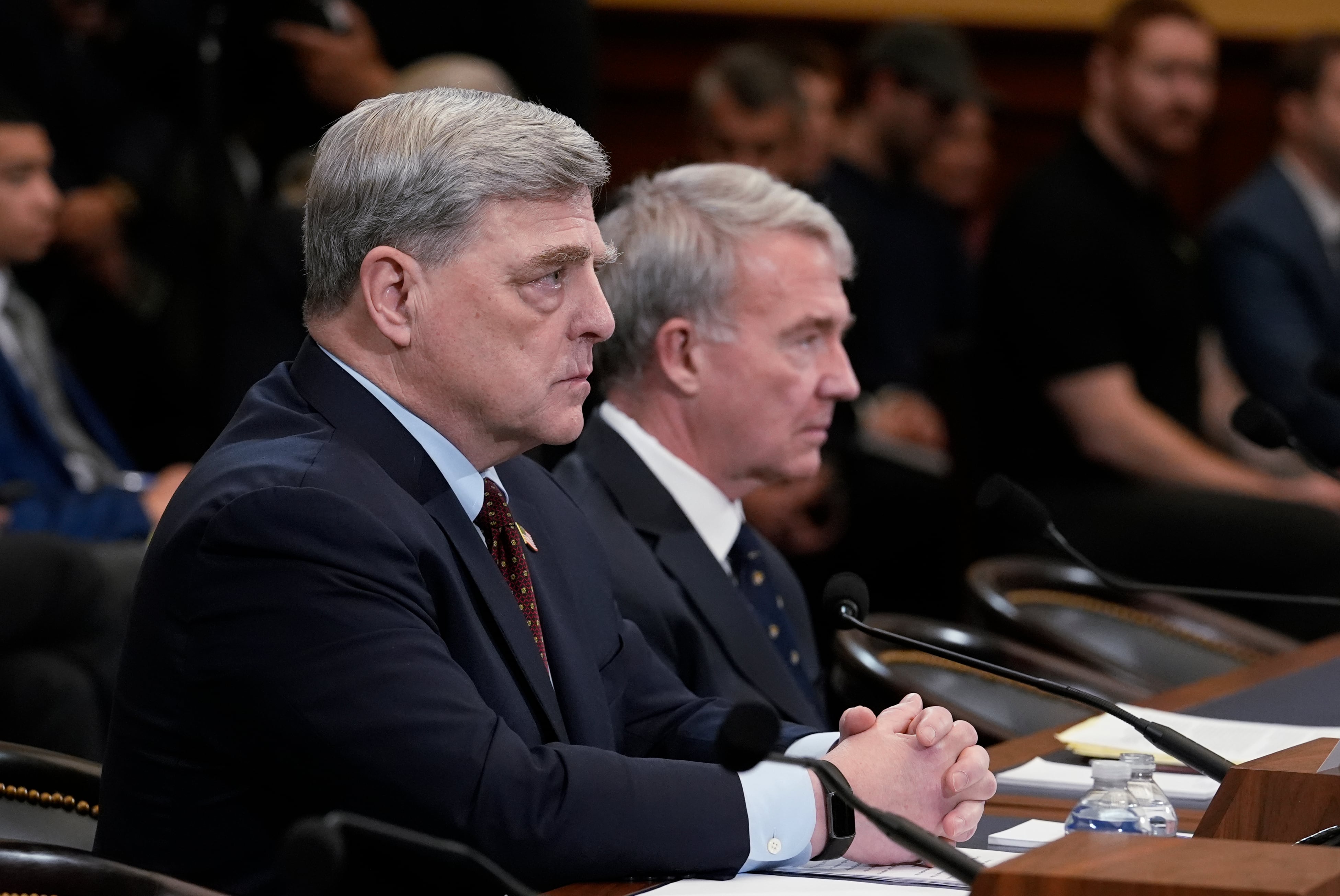WASHINGTON and COLOGNE, Germany — U.S. President Donald Trump’s goal to withdraw 10,000 American troops from Germany will take years to execute, according to Senate Armed Services Committee Chairman Jim Inhofe, R-Okla.
Inhofe’s disclosure, after he was briefed by Pentagon officials on the plans, suggests there wouldn’t be the hasty pullout critics feared, but a more drawn-out approach. The troops are potentially a quick-reaction force against Russia and can be deployed rapidly to the Middle East and Africa.
“It is clear to me that this concept will take months to plan, and years to execute,” Inhofe said in a statement after the briefing Wednesday. “Rigorous planning and deliberate implementation of this concept is the best way to give our military families a measure of certainty and ensure they receive the care and support they deserve.”
Trump administration officials have been planning for the last two months to begin a major drawdown of troops from the NATO ally, to include shifting at least 9,500 personnel to other bases overseas or in the United States, and to cap the total number of U.S. troops stationed there at 25,000. The total is almost 35,000 now, and the troop cap is 50,000.
Officials have suggested the move is designed to reduce the U.S. footprint in a single overseas allied country and instead spread out American response forces ― some farther east ― for more strategic flexibility. Critics say the move would undermine America’s commitment to the NATO alliance and risk a key hub for training and staging forces.
RELATED

Trump initiated the move in part because he believes Germany isn’t spending enough on national defense, and that European countries are taking advantage of American military might.
Lowering the troop cap as the administration plans would significantly undermine the capacity to rotate in U.S. forces for reinforcement or training, according to former U.S. Ambassador to NATO Ivo Daalder, now president of the Chicago Council on Global Affairs. The decision, overall, appeared to be driven by “presidential pique,” he said, and not an assessment of how to achieve America’s national security goals.
“Where was the interagency process that led to this decision,” Daalder said. “It’s the way this administration operates, which is they say let’s do this, and then they figure it out.”
A staunch ally of the president, Inhofe appeared to part with other hawkish Republicans in announcing his support for the president’s “sound” approach to “realigning U.S. military posture in Europe.” Inhofe has said he supports a “lily-pad approach to basing” and mentioned Ukraine, Bulgaria and Romania as other locations to consider.
But Inhofe also hedged by emphasizing military families, whose lives would be upended by a rapid withdrawal.

“We need to maintain a strong presence in Europe to deter Russia, sustain a flexible platform for projecting power into other theaters like Africa and minimize the impact of these changes on military families who already sacrifice so much for our country,” he said.
Still, the matter is expected to be a friction point in talks between the Senate and the House to reconcile their annual defense policy bills. The House-passed version included bipartisan language rebuking the withdrawal plans, while the Senate did not take up a similar, bipartisan amendment led by Sen. Mitt Romney, R-Utah.
Both Democrats and Republicans on Capitol Hill have expressed concerns about the plan. Twenty-two GOP members of the House Armed Services Committee sent a letter to Trump last month stating that the current troop levels in Germany have “helped make America safer.”
The Senate-approved bill included a requirement that the Pentagon report to Congress on allies’ annual military spending, based on an amendment from Sen. Mike Lee, R-Utah. The annual report would have to cover the common defense contributions of NATO countries and other allies, including Gulf Cooperation Council countries, Australia, Japan, South Korea and New Zealand.
The House and Senate bills also express a sense that Congress wants the Baltic states of Estonia, Latvia and Lithuania to “model NATO allies in terms of burden sharing,” and the two pieces of legislation encourage the U.S. to pursue a coordinated plan for those countries’ continued security.
The House-passed State Department spending bill includes $11.4 million each in foreign military financing for Estonia, Latvia and Lithuania, with $115 million for Ukraine and $35 million for Georgia.
Meanwhile, leaders in Berlin seem to have made peace with the idea that the White House may actually go ahead with a “repositioning” of U.S. troops out of Germany, as U.S. Army Secretary Ryan McCarthy has called the move.
Officials in Europe initially shrugged off the drawdown rhetoric, first reported in the United States in early June, simply because the Trump administration had left them completely in the dark. The fear now is that a reconfiguration of the U.S. footprint on the continent could effectively lead to a net decrease of troops, whether in Germany or elsewhere.
“The decisive question for Europe and NATO is whether these troops will be removed from Europe or not,” German Defence Minister Annegret Kramp-Karrenbauer said during a trip to Bratislava, Slovakia, at a July 17 event organized by the Globsec think tank.
“We’re not exactly happy when our American friends leave us,” she said. “That’s the one thing. But it won’t lead to German security collapsing.”
She stressed that Germany and Poland, which has been mentioned as a potential host for the forces slated to leave Germany, should be speaking with one voice as Pentagon leaders finalize their plans. Polish leaders have made clear that any plus-ups of Americans in their country would be undesirable if the price is a drawdown in another part of the alliance, she added.
“Therefore, the issue is not a drag on our bilateral relations,” Kramp-Karrenbauer said of the Berlin-Warsaw rapport.
Leo Shane III contributed to this report.
Joe Gould was the senior Pentagon reporter for Defense News, covering the intersection of national security policy, politics and the defense industry. He had previously served as Congress reporter.
Sebastian Sprenger is associate editor for Europe at Defense News, reporting on the state of the defense market in the region, and on U.S.-Europe cooperation and multi-national investments in defense and global security. Previously he served as managing editor for Defense News. He is based in Cologne, Germany.





